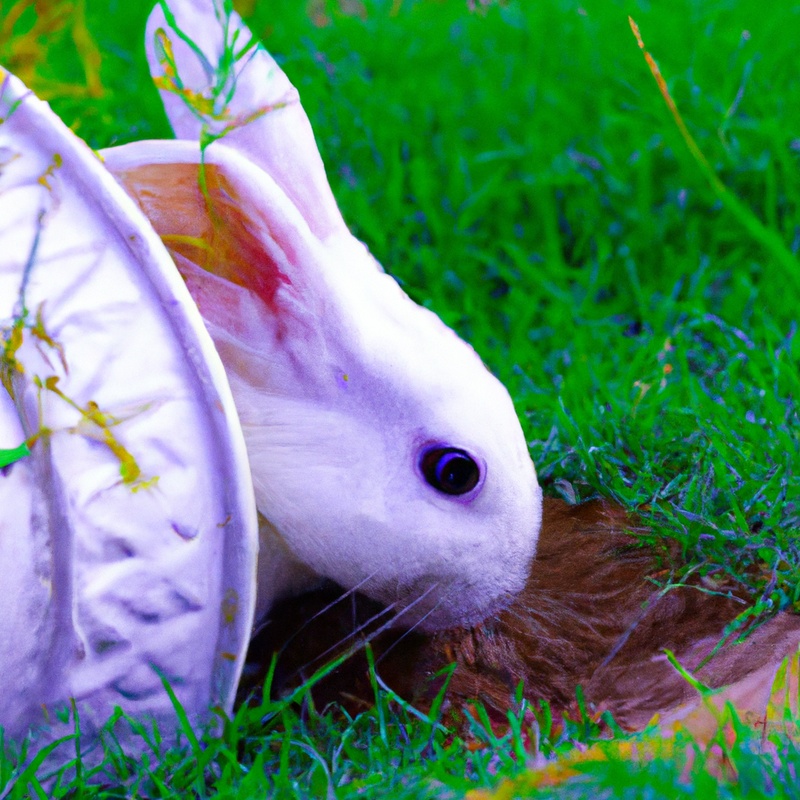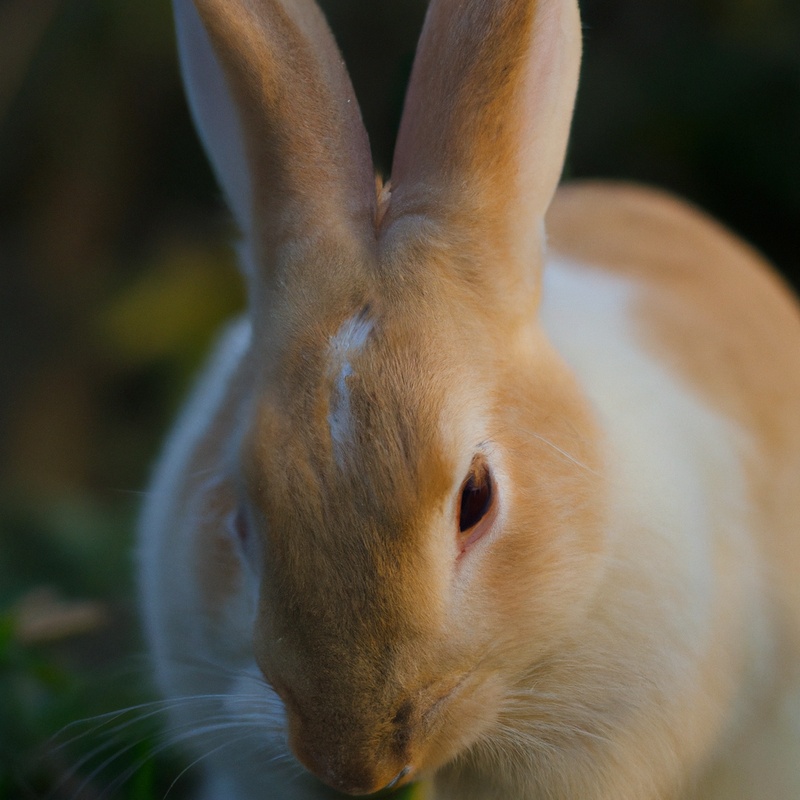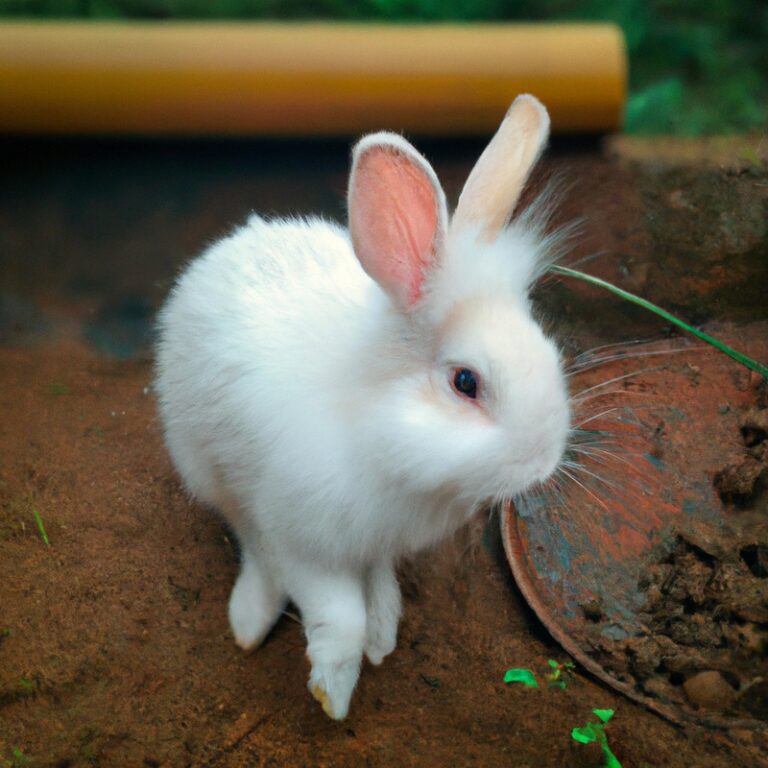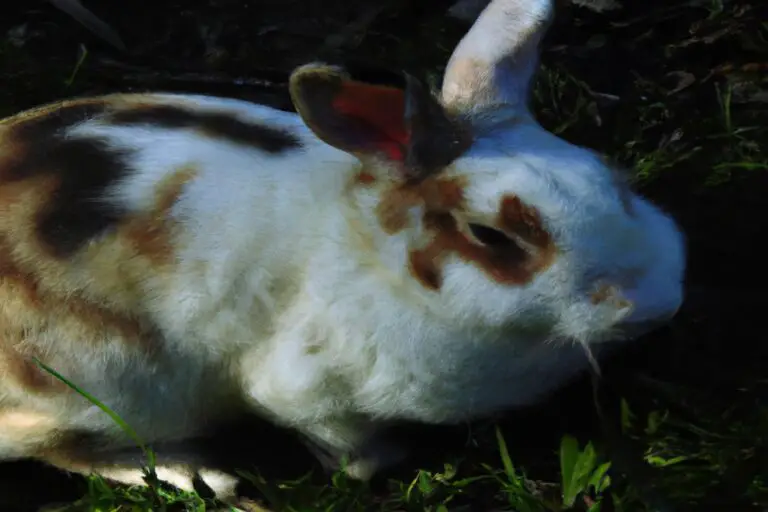How Deep Do Rabbits Burrow? The Burrow Exploration
Key Takeaways:
- Rabbits can burrow tunnels as deep as 3 feet underground.
- The depth of rabbit burrows helps protect them from predators and extreme weather conditions.
- Rabbits’ burrows often have multiple entrances and interconnected chambers.
- The depth of rabbit burrows can vary depending on the availability of suitable soil and vegetation cover.
Have you ever wondered how deep rabbits can dig their burrows? These fluffy creatures may seem innocent, but don’t underestimate their excavation skills.
In this blog, we’re going to dive down the rabbit hole and explore the fascinating world of rabbit burrows.
We’ll uncover why rabbits burrow, the factors that influence the depth of their burrows, and even discover some mind-boggling cases of exceptionally deep rabbit burrows. So, grab your shovel and let’s dig into the secrets of these underground architects.
Get ready to be amazed!
| Question | Answer |
| Topic | How deep do rabbits burrow |
| Main points | Rabbits are burrowing animals |
| Rabbit burrows are called “warrens” | |
| They dig burrows to create shelters and escape from predators | |
| The depth of rabbit burrows varies depending on the species and location | |
| Rabbit burrows can range from a few inches to several feet deep | |
| Warren systems can extend horizontally for several yards | |
| Benefits of burrowing | Provides protection from harsh weather conditions |
| Offers safety from predators | |
| Creates a suitable environment for raising young | |
| Allows for escape and evasion | |
| Impacts of burrowing | Rabbit burrows can cause damage to gardens, lawns, and structures |
| They may undermine foundations and weaken the ground |
The Burrowing Habits of Rabbits
Rabbits have a natural instinct to burrow, creating underground tunnels for various reasons.
Why Do Rabbits Burrow?
Rabbits burrow for several reasons.
First, burrows provide shelter and protection from predators.
By digging underground, rabbits create a safe space where they can hide and sleep securely.
Additionally, burrows help regulate their body temperature, keeping them cool in the summer and warm in the winter.
Burrowing also allows rabbits to access food sources, such as roots and vegetation, that they can store in their burrows for later consumption.
Lastly, rabbits burrow to establish their territory and create safe spaces for breeding and raising their young.

Depth of Rabbit Burrows
Rabbits are expert diggers and create burrows for various purposes. The depth of rabbit burrows can vary depending on factors such as soil condition and environmental factors.
On average, rabbit burrows can range from 1 to 4 feet deep.
However, they can sometimes dig deeper, reaching up to 10 feet underground. The depth allows rabbits to stay protected from predators and extreme weather.
These burrows also serve as shelter and a place for raising their young.

Factors Influencing Burrow Depth
The depth at which rabbits burrow can be influenced by several factors. The primary factor is the species of rabbit, as different species have different burrowing habits.
The soil type and composition also play a role, as rabbits prefer loose, well-drained soil for digging their burrows.
The presence of predators can also influence burrow depth, as rabbits will dig deeper if they feel threatened. Lastly, environmental conditions such as temperature and humidity can affect burrow depth, as rabbits may dig deeper to escape extreme weather conditions.

Average Depth Range of Rabbit Burrows
Rabbit burrows can vary in depth, but on average, they tend to be between 1 to 3 feet deep.
However, there have been cases where rabbit burrows have been found to be as deep as 10 feet! Keep in mind that the depth of a rabbit’s burrow can depend on various factors, such as the soil conditions and the region they inhabit.
So, while the average depth range is 1 to 3 feet, don’t be surprised if you stumble upon a deeper rabbit burrow during your outdoor adventures!
Exceptional Cases of Deep Rabbit Burrows
In some cases, rabbits can dig burrows that are exceptionally deep. These deep burrows can go as far as 3 to 4 feet underground! This is usually done by certain species of rabbits as a means of protection from predators, extreme weather conditions, and to create a safe space for their young.
These exceptional cases of deep rabbit burrows showcase the resourcefulness and adaptability of these furry creatures.
Next time you come across a rabbit burrow, you might be surprised by how deep it goes!
Benefits of Burrowing for Rabbits
Rabbits burrow for various reasons, and it offers several benefits to them. Here are some of the advantages:
- Shelter and Protection: Burrows provide rabbits with a safe and secure place to hide from predators. The tunnels offer protection from harsh weather conditions, ensuring their survival.
- Temperature Regulation: Burrowing helps rabbits regulate their body temperature. They can retreat deep into the burrows during hot or cold weather, maintaining a comfortable living environment.
- Breeding and Raising Young: Rabbits use burrows as nesting sites, providing a secluded space for breeding and raising their young. The burrow offers protection and privacy for the newborns.
- Feeding and Foraging: Rabbits create an intricate network of burrows that allows them to access different areas for foraging. The burrows provide easy access to food sources, ensuring their nutritional needs are met.
- Exercise and Mental Stimulation: Burrowing provides rabbits with physical exercise and mental stimulation. Digging and exploring their burrow system helps keep them active and entertained.
- Territorial Marking: Rabbits use their burrows to mark their territory. By creating intricate systems of tunnels and chambers, they establish their presence and assert dominance.
By understanding the benefits of burrowing for rabbits, we can appreciate the crucial role it plays in their survival and well-being.
Potential Risks of Rabbit Burrows
Rabbit burrows may pose potential risks, especially if they are near buildings or gardens. Here are a few risks to be aware of:
- Structural damage: Rabbits dig extensive tunnel systems that can weaken the stability of any nearby structures, including foundations, fences, and walls.
- Tripping hazards: The entrances and exits of rabbit burrows can create unexpected holes in lawns or pathways, which may increase the risk of accidents and injuries.
- Plant destruction: Rabbits are known to feed on various plants, and their burrows can serve as entry points to gardens, allowing them to damage crops, flowers, and shrubs.
- Pest attraction: Rabbit burrows can become homes for other pests such as rats or snakes, which can bring additional risks and nuisances.
To prevent these potential risks, it’s advisable to fill in any rabbit burrows near buildings, use fencing to deter rabbits from specific areas, and consider using repellents or natural deterrents to protect gardens from rabbit damage.
Frequently Asked Questions (FAQs)
FAQs:
1. How deep do rabbits burrow?
Rabbits are known to dig burrows that can vary in depth. The depth of a rabbit burrow can range from just a few inches to several feet underground.
It depends on various factors such as the species of rabbit, the type of soil, and the availability of food and shelter.
Generally, rabbits dig their burrows deep enough to provide protection from predators and to create a safe nesting place.
2. Do rabbits dig their burrows alone?
Yes, rabbits are solitary animals when it comes to digging their burrows. Each rabbit usually constructs its own burrow system, which consists of tunnels, chambers, and multiple entrances.
However, rabbits may have burrows in close proximity to others in certain situations, such as breeding or when they are part of a warren, which is a group of interconnected burrows.
3. Are rabbit burrows harmful to the environment?
While rabbit burrows can be beneficial for the rabbits themselves, they can sometimes have negative impacts on the surrounding environment. Burrows can cause soil erosion, especially on steep slopes, and may weaken the structural integrity of man-made structures like fence posts.
Additionally, rabbits can graze heavily on vegetation, leading to overgrazing and potential harm to the ecosystem.
4. How can I keep rabbits from digging burrows in unwanted areas?
If you want to prevent rabbits from digging burrows in specific areas, there are a few strategies you can try. One is to install a physical barrier such as a fence around the area you want to protect.
Additionally, regularly removing or blocking entrances to existing burrows can discourage rabbits from returning to the same location.
You can also consider using natural repellents or deterrents, like planting certain types of plants or applying substances that rabbits find unappealing.
How deep do wild rabbits burrow?
Wild rabbits are known for their impressive burrowing abilities. These small creatures can dig burrows anywhere from 1 to 3 feet deep.
The depth of their burrows can vary depending on factors such as soil conditions and predator threats.
These burrows provide shelter and protection for rabbits from harsh weather conditions and from predators. The burrows typically have multiple entrances, allowing rabbits to quickly escape if needed.
How deep do pet rabbits burrow?
Pet rabbits have a natural instinct to dig and create burrows. The depth at which they burrow can vary depending on the rabbit and its environment.
On average, pet rabbits may dig burrows that are around 1 to 2 feet deep.
However, some rabbits may dig even deeper burrows, reaching up to 3 or 4 feet underground. It’s important to provide them with appropriate digging areas or toys to satisfy this behavior in a safe and controlled manner.
Always ensure the burrow is secure to prevent escapes and potential harm.
Do rabbits dig tunnels?
Yes, rabbits do dig tunnels.
They are known for their burrowing habits, which include creating intricate networks of underground tunnels and chambers.
These tunnels serve as shelter and protection for the rabbits from predators and harsh weather conditions.
Rabbits are skilled diggers, using their powerful hind legs and sharp claws to excavate these tunnels.
Their burrows can vary in depth, depending on the species and the environmental conditions.
In general, rabbit tunnels can range from a few inches to several feet in depth.
How long do rabbit burrows last?
Rabbit burrows can last anywhere from a few months to several years. The duration depends on various factors such as the rabbit species, soil conditions, and predator activity.
Some burrows may only be used temporarily for shelter or raising young, while others are more complex and serve as long-term homes.
It’s essential to note that rabbits are adaptable animals and may abandon or dig new burrows as their needs change.
Can rabbits share burrows with other animals?
Yes, rabbits can share burrows with other animals.
They are known to share their burrows with other rabbits, as well as smaller mammals like ground squirrels and chipmunks.
Sharing burrows provides additional protection against predators and also helps in regulating temperature.
However, rabbits may not share burrows with larger animals, as they prefer smaller, cozy spaces.
It’s an interesting aspect of their social behavior!
How to prevent rabbits from burrowing in unwanted areas?
One way to prevent rabbits from burrowing in unwanted areas is to install a barrier around the perimeter. This can be done by burying a fence at least 1 foot deep into the ground, as rabbits are not known to dig deeper than that.
Another option is to use wire mesh or hardware cloth to cover the areas where they might try to dig.
Additionally, keeping the area clear of debris and providing alternative spaces for rabbits to burrow, such as designated areas with loose soil or sand, can also help redirect their digging behavior.
Final Verdict
Rabbits are skilled burrowers that dig tunnels for a variety of reasons.
The depth of rabbit burrows can vary depending on factors such as soil type, predator threat, and available resources.
On average, rabbit burrows can range from 1 to 3 feet deep.
However, there have been exceptional cases where rabbit burrows have been found to be much deeper.
Burrowing provides rabbits with numerous benefits, including protection from predators and extreme weather conditions.
However, there are also potential risks associated with rabbit burrows, such as damage to gardens and infrastructure.
Understanding the burrowing habits of rabbits can help us prevent them from burrowing in unwanted areas and coexist peacefully with these fascinating creatures.







